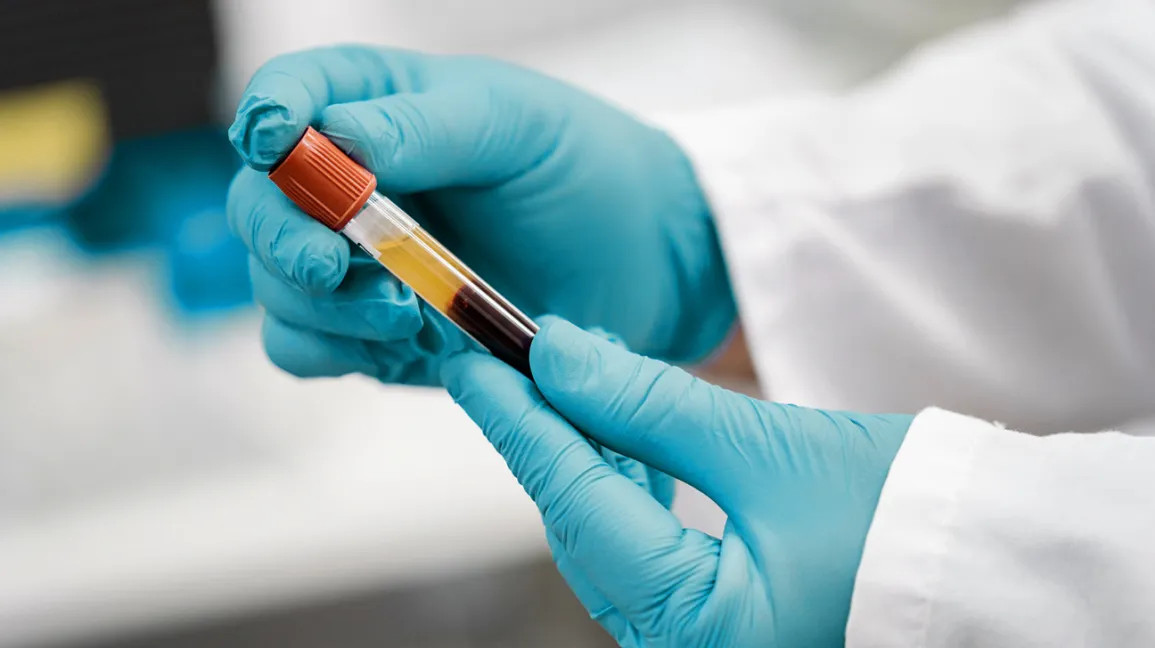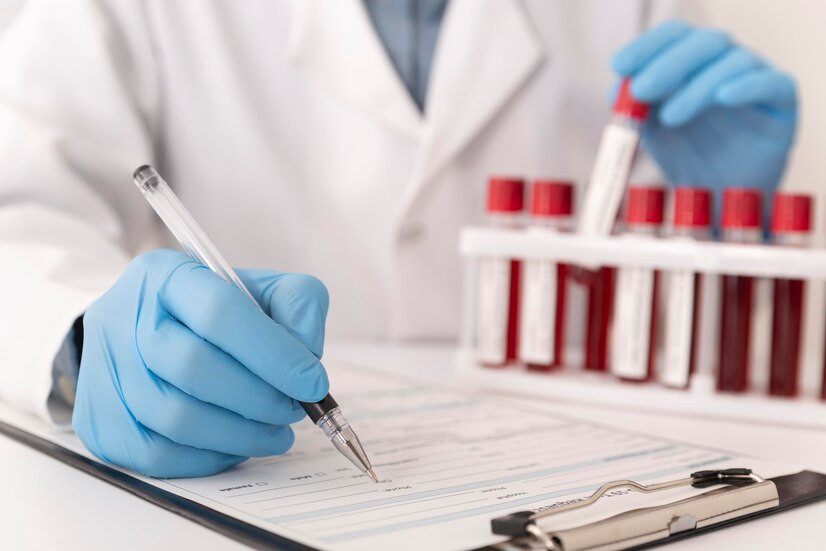Definition
A luteinizing hormone (LH) test measures the levels of LH in your bloodstream. This hormone, produced by the pituitary gland, plays vital roles in reproductive health for both men and women.
In women, LH regulates the menstrual cycle and triggers ovulation, which is the release of an egg from the ovaries. LH levels rise significantly just before ovulation occurs.
In men, LH stimulates testosterone production in the testes, a hormone critical for sperm development. Unlike in women, LH levels in men tend to remain steady.
For children, LH levels are typically low during early childhood but begin to rise several years before the onset of puberty. In girls, LH prompts the ovaries to produce estrogen, while in boys, it stimulates the testes to produce testosterone.
Indications
In women, LH test is most commonly conducted to:
- Identify the cause of infertility.
- Determine the timing of ovulation, which is critical for conception.
- Diagnose irregular or absent menstrual cycles.
- Confirm menopause or perimenopause.
Menopause occurs when menstrual periods permanently cease, typically around age 50. Perimenopause refers to the transitional period leading to menopause, which can last for years. LH tests can help confirm whether a woman is approaching or has entered this stage.
Women may require an LH test if they:
- Have been unable to conceive after a year of trying.
- Experience irregular menstrual cycles.
- Have stopped menstruating entirely.
LH tests in men are primarily used to:
- Diagnose the cause of infertility.
- Determine reasons for low sperm counts.
- Investigate reduced sexual drive.
LH test may be recommended for both men and women exhibiting symptoms of pituitary dysfunction. Common symptoms include:
- Fatigue
- Weakness
- Unintended weight loss
- Loss of appetite
An LH test can help diagnose early or delayed puberty in children.
- Early puberty is diagnosed if it begins before age 9 in girls or age 10 in boys.
- Delayed puberty is diagnosed if it has not started by age 13 in girls or age 14 in boys.
Contraindications
Contraindications for blood sampling primarily relate to the condition of the area where the blood is drawn. For instance, infections at the sampling site can pose a risk of bacteria entering the bloodstream, making such areas unsuitable for blood collection.
Other factors that may contraindicate blood sampling include the presence of blood vessel grafts, bruising, or arterial hardening in the area.
Preparation Prior to Test
For women who have not yet entered menopause, a doctor might recommend scheduling the test during a specific phase of the menstrual cycle.
Test Procedure
The procedure involves using a small needle to draw a blood sample from a vein, typically in the arm. Once the needle is inserted, a small amount of blood is collected in a test tube. This process is quick, typically taking only a few minutes.
Normal and Abnormal Values
Normal levels of luteinizing hormone (LH) vary depending on factors such as age and gender. For women, the reference values are:
- 5–23 IU/L before menopause
- 2–52.3 IU/L after menopause
LH levels typically surge during the middle of the menstrual cycle.
For men, normal LH levels generally range between 1.8–8.6 IU/L.
In children, LH levels are usually low.
Results and Recommendations (Follow-up Tests)
Elevated LH levels in women may indicate:
- Lack of ovulation. In women of reproductive age, this could point to ovarian dysfunction. For older women, high levels may signify menopause or perimenopause.
- Polycystic ovary syndrome (PCOS). This hormonal condition is common among women of childbearing age and is a leading cause of infertility.
- Turner syndrome. A genetic disorder affecting sexual development, often resulting in infertility.
High LH levels in men might indicate:
- Testicular damage caused by chemotherapy, radiation, infection, or alcohol abuse.
- Klinefelter syndrome, a genetic condition that impairs male sexual development and frequently causes infertility.
Low LH levels in men can indicate issues with the pituitary gland or hypothalamus—areas of the brain that regulate hormonal functions.
In children, elevated LH levels, especially alongside high follicle-stimulating hormone (FSH) levels, could indicate the onset of puberty. If puberty occurs prematurely (before age 9 in girls or 10 in boys), it might suggest underlying conditions like brain injuries or central nervous system disorders.
Conversely, low LH and FSH levels in children could signify delayed puberty. Possible causes of delayed puberty include:
- Ovarian or testicular dysfunction
- Turner syndrome in girls
- Klinefelter syndrome in boys
- Hormonal deficiencies
- Infections
LH testing is often paired with FSH testing since both hormones play interconnected roles in regulating sexual function.
Consult the Right Doctor
If you are a woman with abnormal LH results, consulting an obstetrician is recommended. Men with irregular LH levels should seek advice from an andrologist. For children experiencing puberty-related issues or abnormal LH levels, it is important to consult a pediatrician.
Looking for more information about laboratory, radiology, and other examination results? Click here!
- dr Hanifa Rahma
Luteinizing hormone (LH) levels test: Medlineplus medical test (2020) MedlinePlus. Available at: https://medlineplus.gov/lab-tests/luteinizing-hormone-lh-levels-test/ (Accessed: 29 May 2023).
Luteinizing hormone (LH) test: Purpose, high vs. low vs. normal levels (2022) WebMD. Available at: https://www.webmd.com/a-to-z-guides/luteinizing-hormone-test (Accessed: 29 May 2023).
Luteinizing hormone (blood) (no date) Luteinizing Hormone (Blood) - Health Encyclopedia - University of Rochester Medical Center. Available at: https://www.urmc.rochester.edu/encyclopedia/content.aspx?ContentTypeID=167&ContentID=luteinizing_hormone_blood (Accessed: 29 May 2023).












